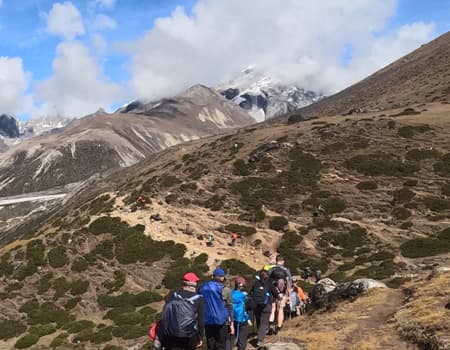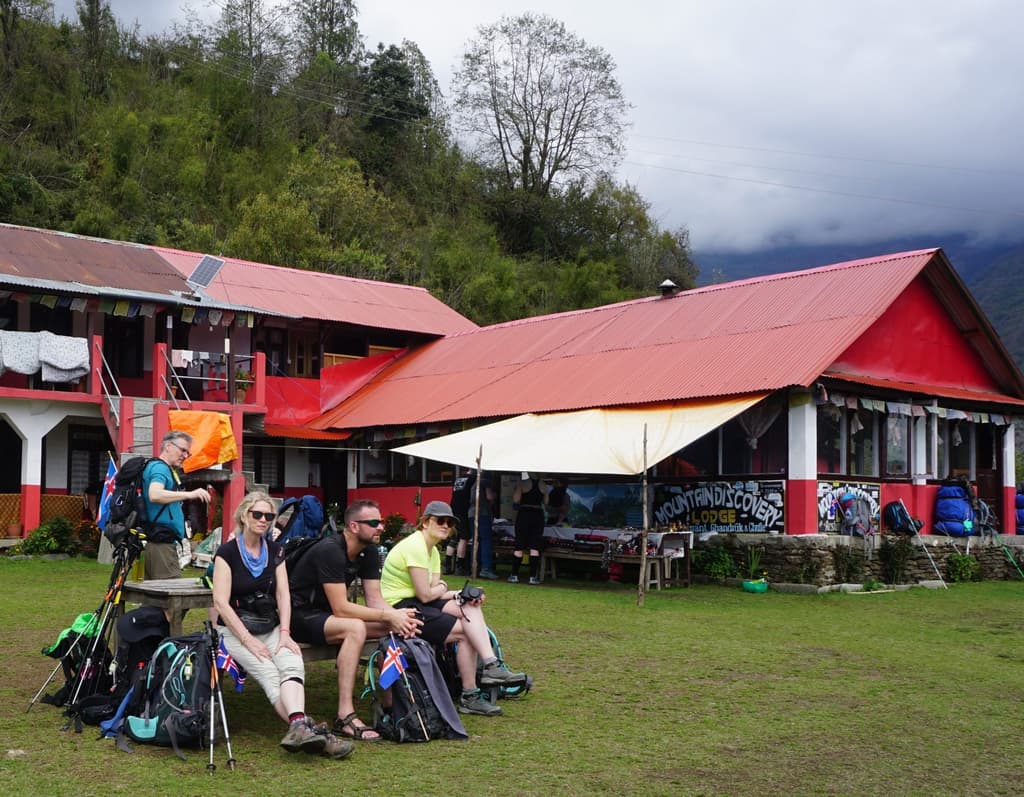Beautiful, affordable, and with uncomplicated visa rules, Nepal is one destination where most tourists love to spend their vacations. For first-time visitors, this tiny landlocked country has so many surprises in store – from the awe-inspiring mountains to a unique and different culture. Read on and find out some of the facts about Nepal that you may find shocking.
Kumari - Worshipping Little Girls as Living Goddesses
Hindus believe that the goddess Durga resides in the body of pre-pubescent girls. In Kathmandu Valley, young girls from the Shakya and Bajracharya castes of the Newari community are chosen as Kumari, Living Goddesses. They live in a special house with attendants and priests. They have to perform special pujas, receive devotees, and bless them.
Wherever they go they are carried by attendants as their feet shouldn't touch the bare ground. Kathmandu, Patan, and Bhaktapur each have their own Kumaris, but the Kumari of Kathmandu is regarded as the most important Living Goddess in the valley.
A National Flag which is not rectangular
The national flag of Nepal is the only national flag in the world that is not rectangular. Made up of two triangles, the shape looks like a pagoda. Adorned with the sun and the moon, the color of the flag is red with a blue border. The color red symbolizes the courageous spirit of the Nepalese people while the blue stands for peace.
The Nepalese calendar is 57 years ahead of the Gregorian Calendar
Bikrami or Bikram Sambat calendar is used in Nepal. It is a solar calendar that is fifty-seven years ahead of the Gregorian or Western calendar. While the current year is 2022 in the Gregorian calendar, it's 2079 in the Nepalese calendar. One can say that the Nepalese are living in the future!
Sunday is a working day
In Nepal, Saturday is a holiday while Sunday is a working day. Most foreigners find this fact strange as they are used to Sunday being a holiday. Nepal was the Hindu Kingdom till 2008. As per Hindu belief, Saturday or Shanivar is ruled by Satrun or Shani Dev, the Hindu god of justice. It is regarded as inauspicious to work on this day as Shani can bring misfortune if you are careless or commit bad karma.
Jutho or concept of impurity
There are certain rules about eating that you need to bear in mind if you are visiting or living with a Nepali Hindu family. You never share food from your plate once you have started eating. Unless you are from the same family or close friends, sharing food from your plate once you have started eating is considered insulting and impure. Nepalese called it 'jutho' or impure. You also shouldn't touch the serving spoons or ladles with your mouth to taste the food. While drinking from a common container, you should do it without touching the rim with your mouth or lips.
Four ways of saying 'You'
There are four ways of saying 'you' in the Nepali language – 'hajur', 'tapai', 'timi', and 'ton'. ‘Hajur’ and ‘tapai’ are used formally to address superiors, elders, and acquaintances. One uses 'timi' with friends and peer groups. 'Ton' is used informally to address juniors, close friends, and people inferior to you.
Dal-Bhat for lunch and dinner
Visitors to Nepal from western countries find it perplexing that Nepalese can spend 360 days in a year eating the same kind of food, ie, Dal-Bhat or rice, lentil soup, and curry. The carbohydrate-rich Dal-Bhat is an ideal diet for most Nepalese who live in the mountains. They work hard from dawn to dusk and need an endless supply of energy provided by the belly-filling Dal-Bhat.
Use of right hand for eating
If you are using your hand to eat in Nepal, then as per local custom you should use your right hand. The left hand is regarded as impure as it is used to clean oneself after a trip to the restroom.
Also, it is regarded as respectful to receive gifts and items that are offered to you with your right hand. While offering something to others you should also use your right hand or both hands.
Caste System
More than eighty percent of Nepal's population are Hindus. As per Hindu belief, society is divided into four classes or caste systems. There is no concept of equality as the higher castes are regarded as superior to the lower castes. In remote villages and towns, people still follow the rules of untouchability (people from the lower castes are barred from fraternizing with the higher castes).
Personal Questions used as ice-breakers
Nepalese are a friendly bunch and they love chatting up with people- doesn't matter if you are a perfect stranger. It is not uncommon for foreigners to get bombarded with questions like - Where do you live? What do you do? Are you married? How many children do you have? Where is your wife/husband? When are you planning to get married? What does your father/mother/husband/wife/children do? - while interacting with the locals.
One may find it uncomfortable but this is how Nepalese try to get to know you and ultimately become your 'good friend'. When they ask these personal questions they are genuinely interested in you and want to know more about your life. They have no ulterior motives or intentions of harming you when they ask these questions.
Superhuman strength of Nepalese Porters
While trekking in the mountains you will come across pint-sized porters who carry loads four or five times their weight. For a westerner, it is shocking to see a small human wearing flip-flops carrying household items or heavy construction materials up and down the mountain. What's more surprising is they are able to overtake well-built trekkers carrying light daypacks on steep ascents.
Holy Cow
Beef is an item that is not readily available in shops and restaurants in Nepal. The cow is sacred to the Hindus and it was illegal to sell and consume beef in the recent past. But now since the country has become secular, people of other faiths are given the freedom to consume beef too. Still one can hardly find butchers selling beef in Nepal.
Books are treated with reverence
A Nepalese child is taught to revere books as they provide us with knowledge. One doesn't sit on it, touch it with one's leg or kick it. It is believed that Goddess Saraswati, the goddess of knowledge and learning resides in the books, and disrespecting the books will make one ignorant and dumb.
Weird rules about PDA
PDA or public display of affection with the opposite sex is frowned upon in Nepalese society. But people don't bat an eyelid when same-sex adults (male or female) hold hands or put their arms around each other in a public place. You can see grown men holding hands and walking in busy streets with the people hardly noticing them, while a boy and a girl holding hands would invite stares and disapproving looks.
Gai Jatra- A unique festival where humor is celebrated
Gai Jatra is a festival celebrated in Kathmandu where everybody is allowed to make fun of anybody. From high-ranking officials like the President and Prime Minister to commoners, one can lampoon and poke fun without worrying about offending the receiver of one's jokes.
On a final note
The above-listed facts are just a few that tourists may find odd. In addition to these, there are numerous other customs and beliefs in Nepal that one may find intriguing. To better understand the Nepalese people and their interesting customs, one needs to immerse oneself in the local culture with an open mind.
Nepal is not only an adventure playground for mountaineers and trekkers, it is also a destination where you can learn about customs and traditions that have their roots in ancient Buddhist and Hindu teachings.
There’s so much to do and see in Nepal that a single holiday is not enough to capture the essence of this inspiring country. For those who want to get amazed there’s no better destination than Nepal. So what are you waiting for? Pack your bags and head to Nepal!



Post a Comment